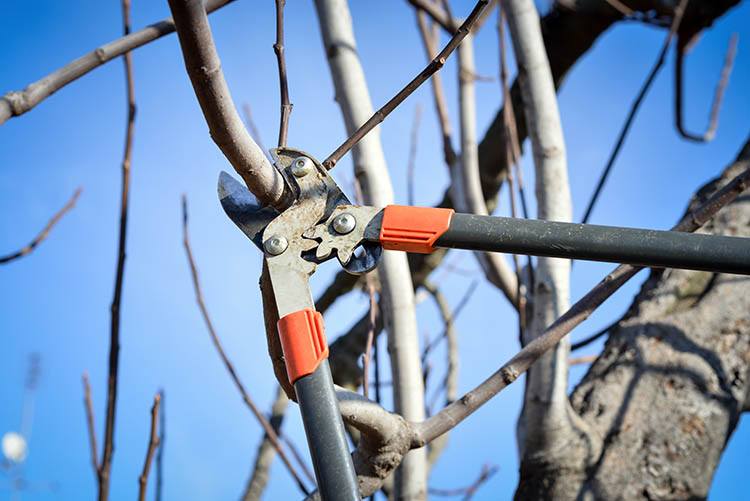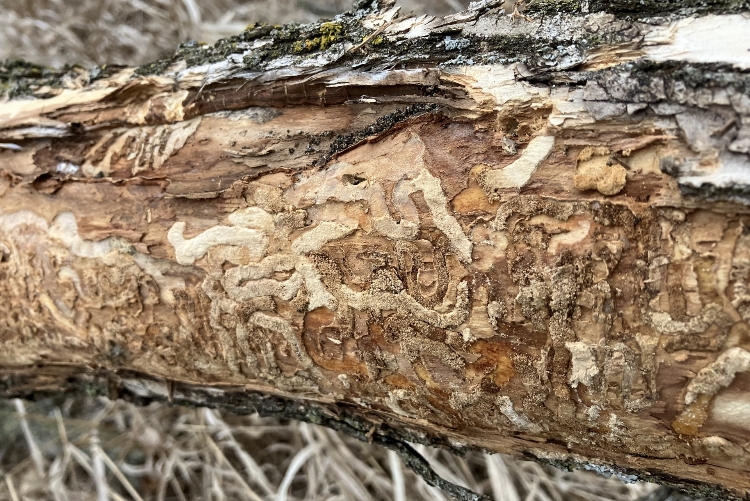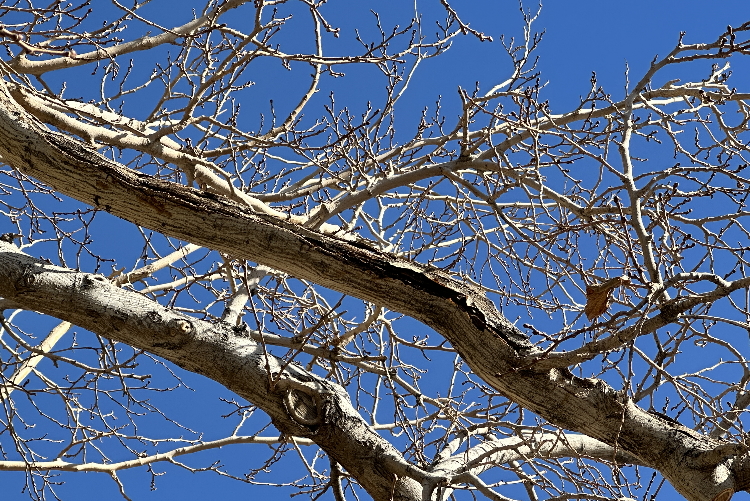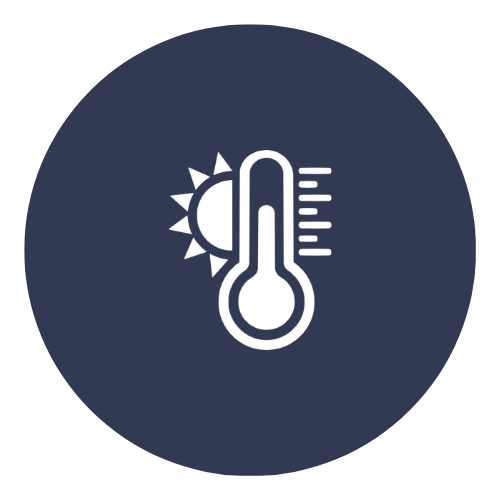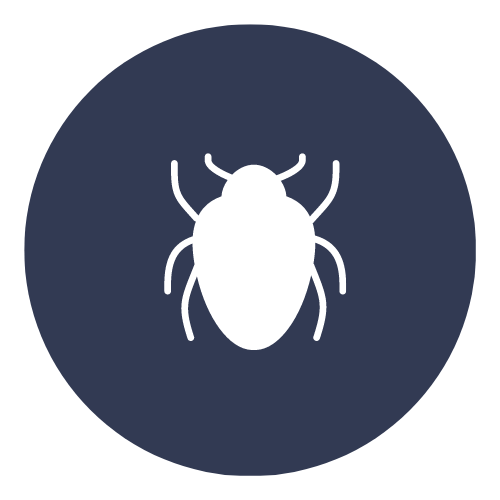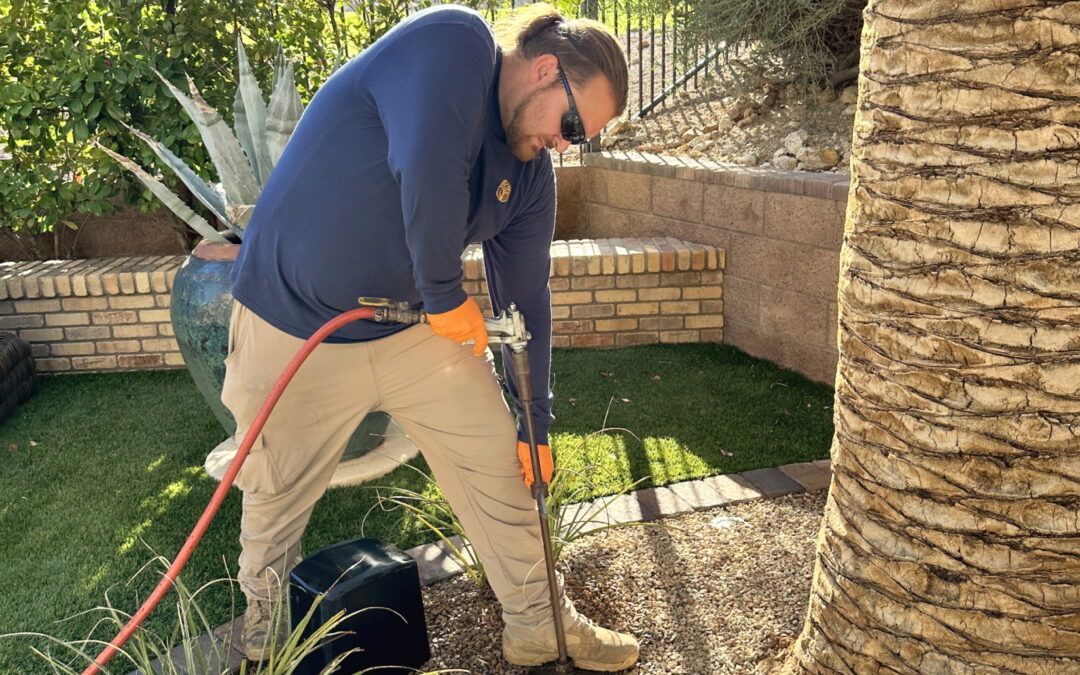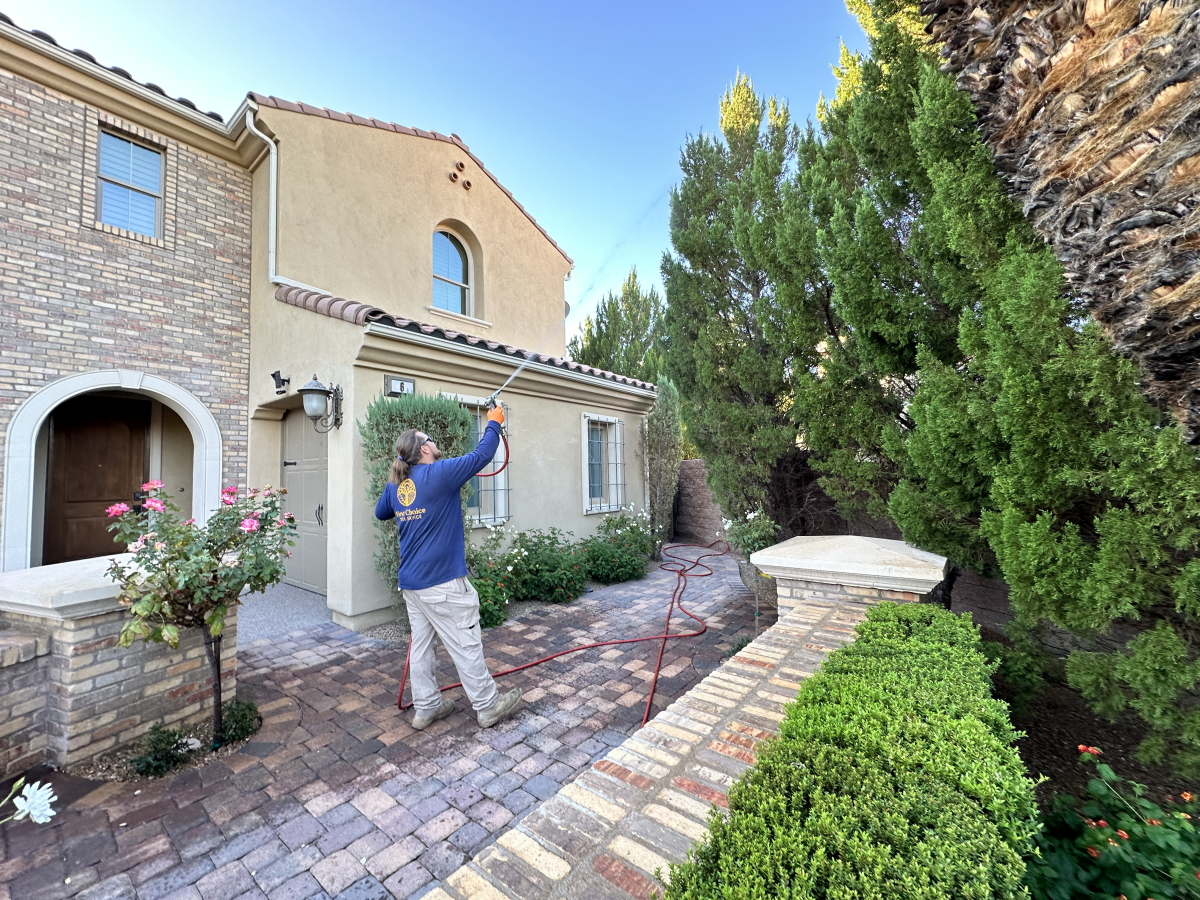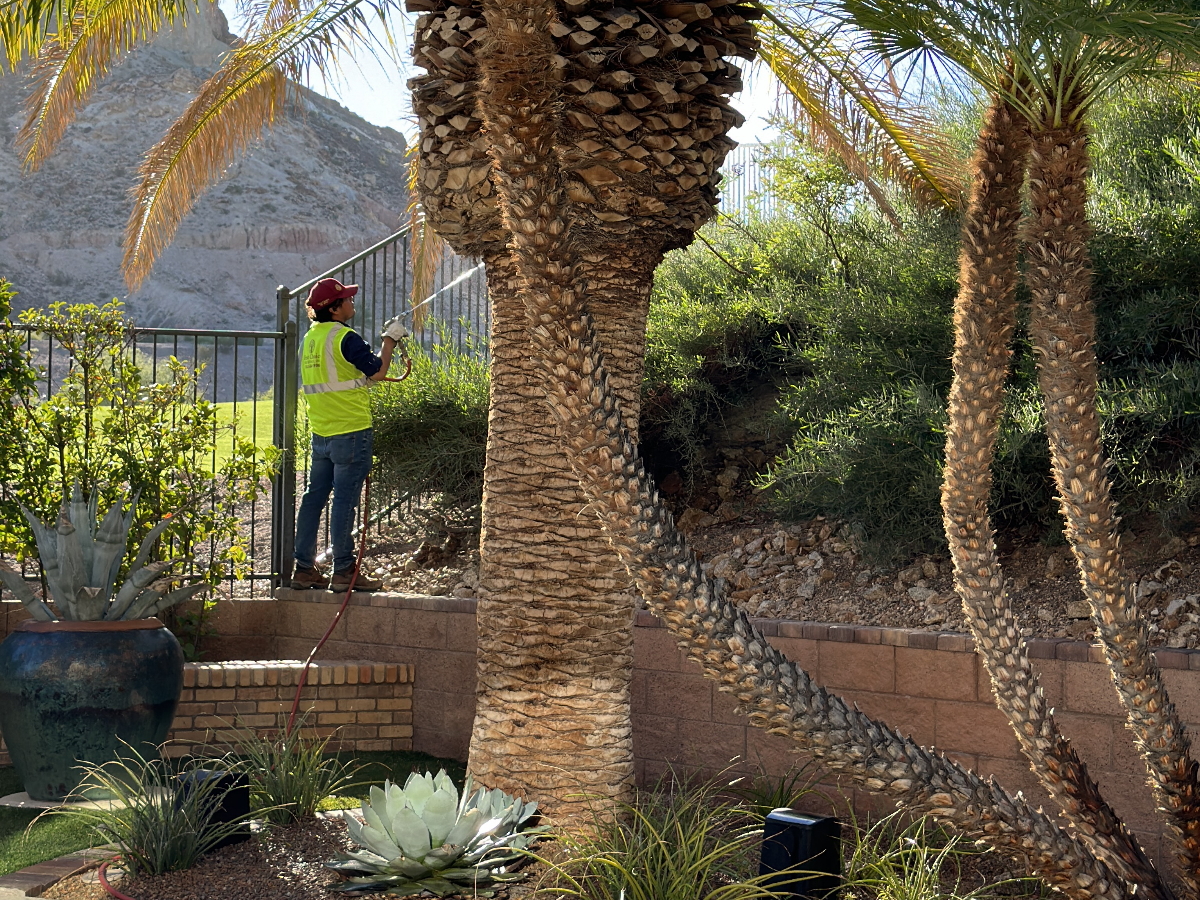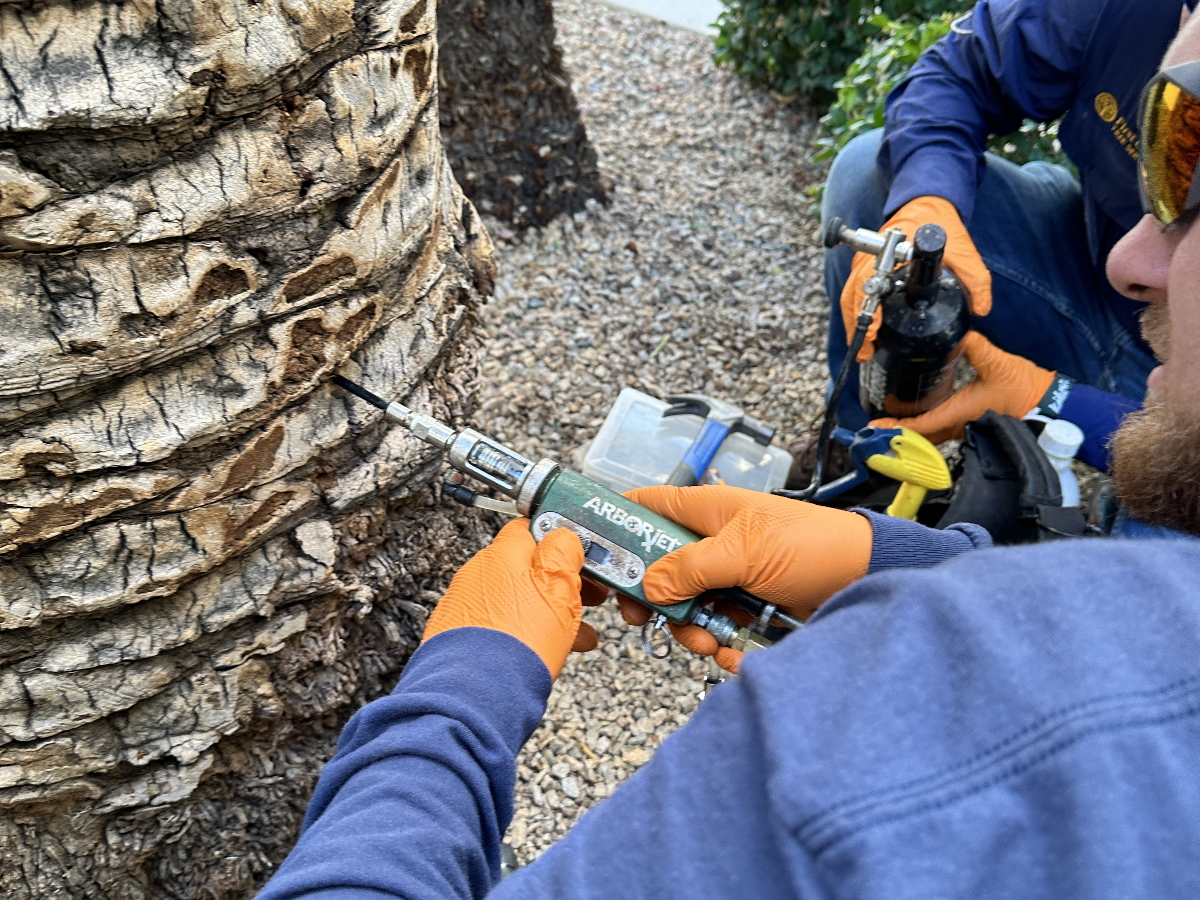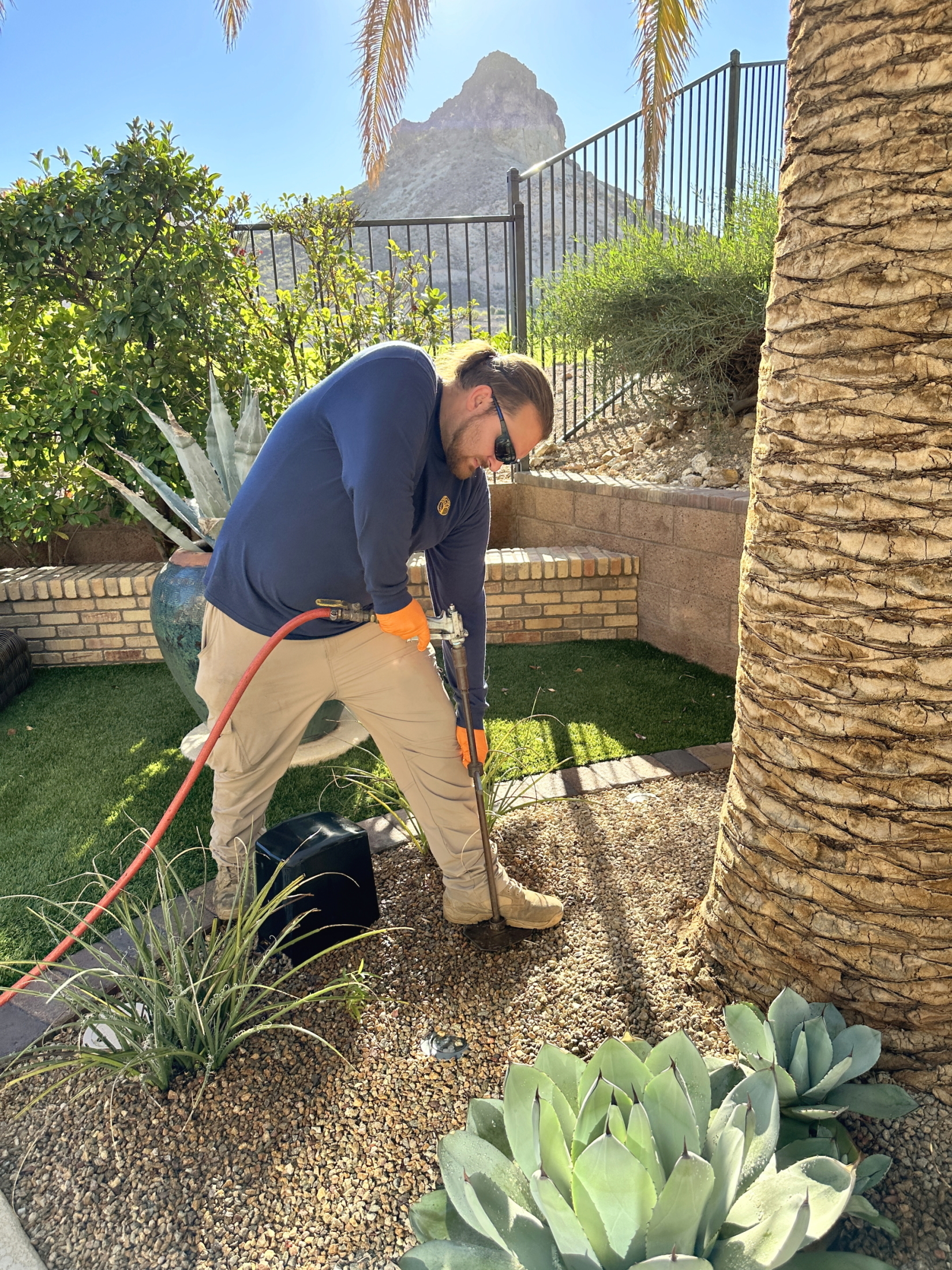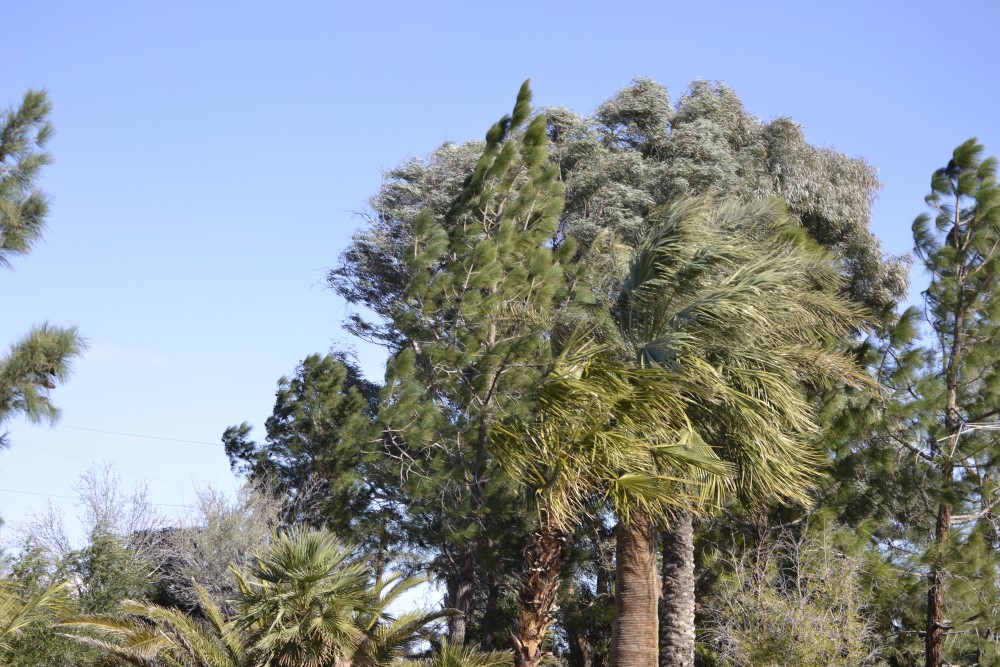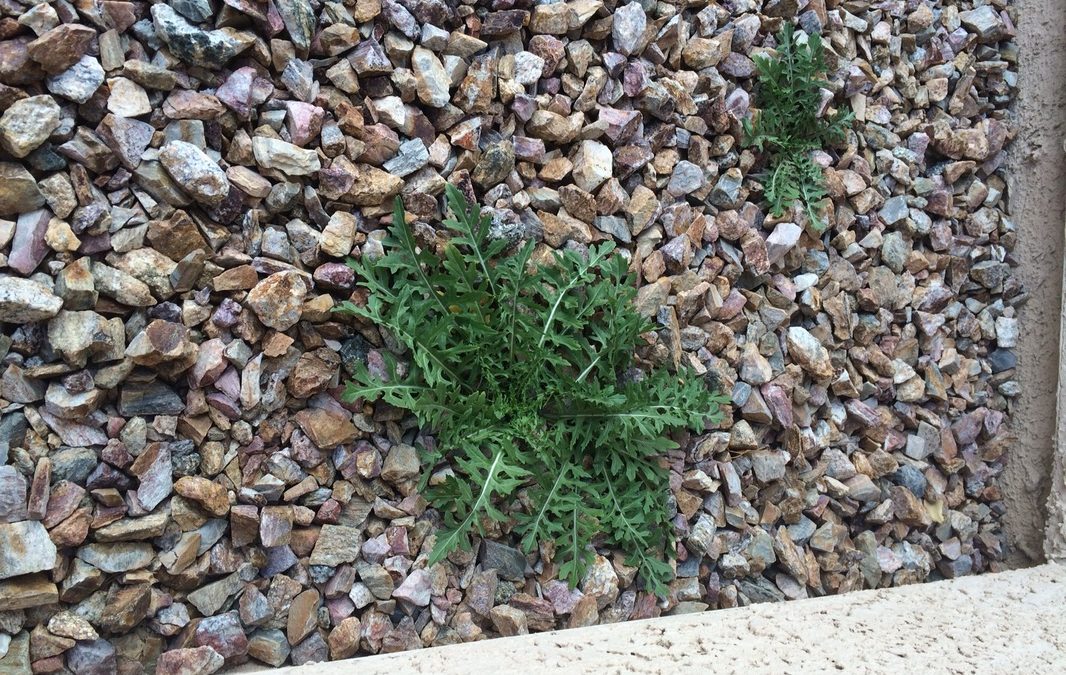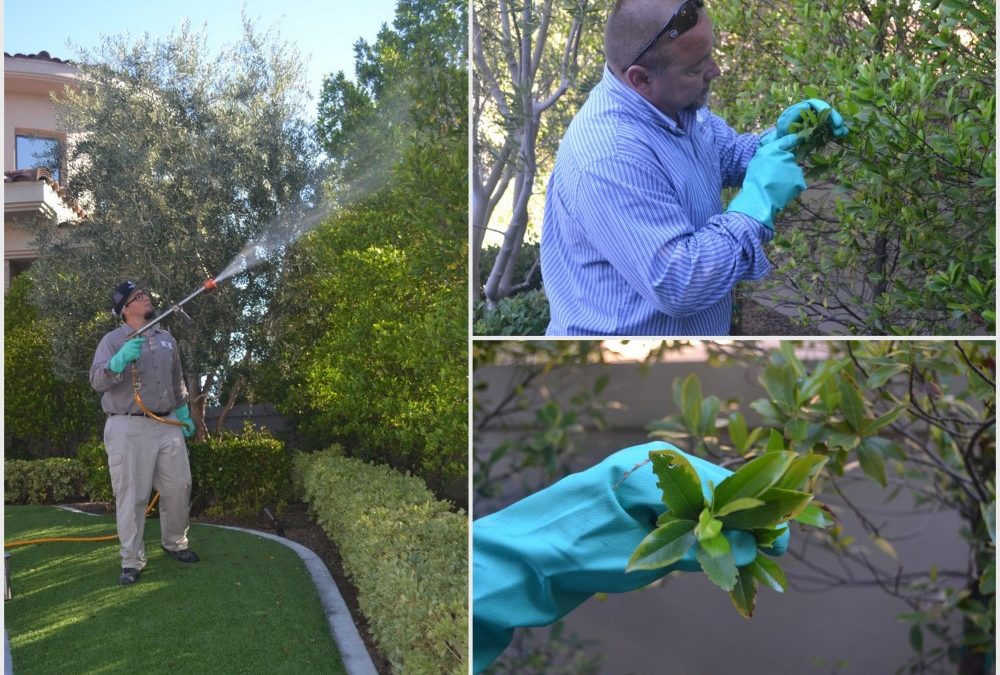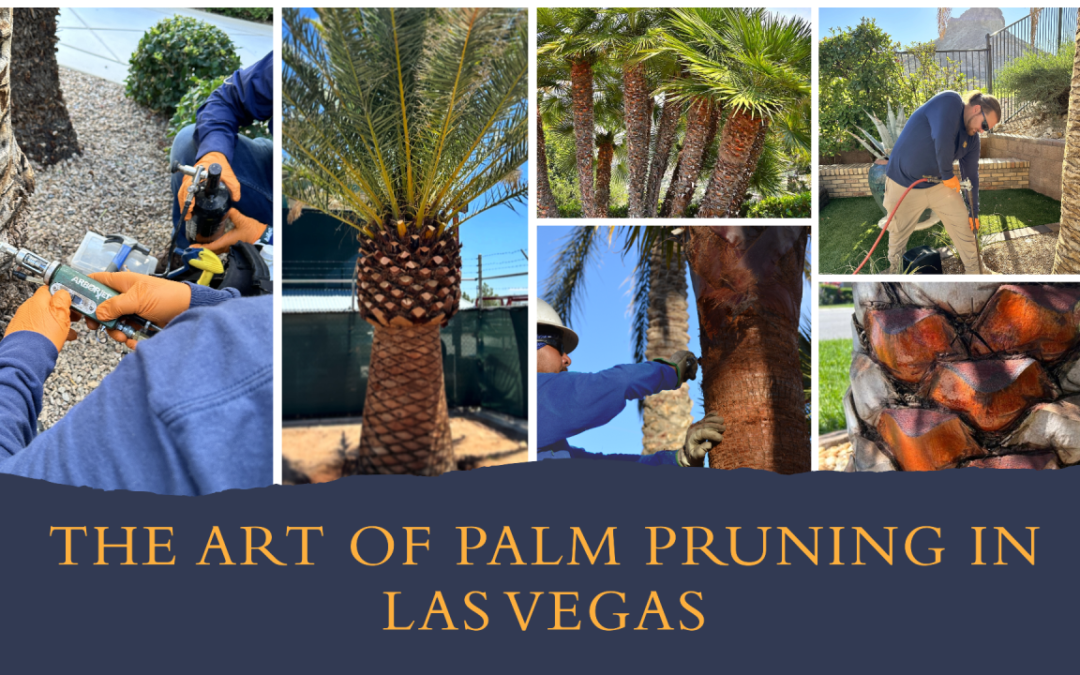
The Art and Importance of Palm Tree Pruning in Las Vegas
Palm trees symbolize the allure of Las Vegas, gracing not only the lavish casino resorts and pristine golf courses but also adorning our streets and landscapes with their iconic presence. However, their picturesque beauty demands meticulous care, especially in the arid desert climate of Las Vegas. At First Choice Tree Service, we recognize the significance of palm tree maintenance and provide a suite of specialized services to uphold the health, vibrancy, and safety of your palms.
Why Pruning Matters
Proper pruning is vital in the care of palm trees. Renowned for their breathtaking beauty, regular maintenance is essential, as these majestic plants can become not only eyesores but also significant safety risks. Accumulated dead fronds within the canopy not only detract from their visual splendor but also pose a serious fire hazard, especially with our temperatures in Las Vegas. Additionally, overgrown palms can attract unwelcome pests such as rodents and scorpions, further emphasizing the necessity of consistent trimming. By prioritizing the grooming of your palms, you not only enhance their beauty and vitality but also ensure their long-term health and resilience, making them a cherished centerpiece of your landscape.
Specialized Pruning Techniques
At First Choice Tree Service, we specialize in the art of palm tree pruning, tailored to meet the distinct needs and characteristics of each palm species. In addition to the regular removal of dead palm fronds and seed pods, we provide a range of supplementary services designed to enhance the appearance and promote the overall health of your palms.

When it comes to Date Palms, the diamond cut technique stands out as a popular choice for trimming their trunks with elegance and sophistication. This method entails skillfully shaping the palm trunk to form facets reminiscent of a diamond. Widely embraced in resorts, shopping centers, and upscale properties, the diamond cut technique is favored for its ability to enhance visual appeal, making it an ideal choice for instant aesthetic charm.
Both California and Mexican Fan Palms, can undergo a method known as “skinning,” where remaining bark is carefully stripped from the trunk. This practice enhances the tree’s visual appeal and prevents pests from inhabiting it. By eliminating potential shelters, we not only improve the tree’s appearance but also minimize the risk of pest infestations, thus promoting the tree’s overall health.


Canary Island Date Palms, esteemed in upscale properties and resorts for their tropical look, can undergo precise sculpting of their trunk and crown once they reach at least six to seven feet tall. Special attention is given to shaping the crown into the iconic pineapple-shaped ball, nestled just below its magnificent canopy. This distinct appearance has earned them the nickname “Pineapple Palm” and solidifies their status as the most coveted palm species.
Mediterranean Palms, distinguished by their multi-trunk structure with fibrous bark and fan-shaped leaves, they demand careful attention to maintain their distinctiveness while supporting their health. However, it’s crucial to prioritize the removal of dead (or dying) fronds and seed pods, avoiding excessive pruning as these palms thrive with minimal intervention.

Promoting Plant Health
In addition to pruning, prioritizing the health of your palm trees through appropriate plant health care applications is crucial. At First Choice Tree Service, we conduct comprehensive assessments of your palm tree’s needs and provide tailored recommendations aimed at controlling pests and addressing nutrient deficiencies.

Utilizing Arborjet technology, we administer trunk injections to directly target pests and diseases, minimizing environmental impact while maximizing effectiveness. By injecting formulations directly into the trunk, they are efficiently absorbed by the palm’s vascular system, ensuring precise and thorough treatment.
Unlike surface fertilization, deep-root fertilizations deliver enriched nutrients directly to the tree’s foundation. Through this method, we inject essential micro and macro nutrients, ensuring your palms receive the nourishment necessary to thrive in the desert environment.

Trusted Expertise Since 1989
First Choice Tree Service stands as a beacon of expertise and reliability in the Las Vegas community, led by arborists with a passion for preserving the beauty of palm trees. With over three decades of experience, we have cultivated a reputation for excellence, earning the trust of homeowners, businesses, and municipalities alike. Our commitment to quality, safety, and customer satisfaction is unwavering, making us the trusted source for all your palm tree care needs.
In conclusion, the importance of palm tree pruning in Las Vegas cannot be overstated. Beyond mere aesthetics, regular maintenance ensures the safety, health, and longevity of these iconic trees. At First Choice Tree Service, we combine specialized techniques, advanced technologies, and a legacy of expertise to deliver unparalleled care for your palm trees. Trust us to safeguard the beauty of your landscape, one palm at a time. Feel free to request a free estimate and we will have our skilled and talented team of experts recommend a plan that fits your particular needs.

Palm trees symbolize the allure of Las Vegas, gracing not only the lavish casino resorts and pristine golf courses but also adorning our streets and landscapes with their iconic presence. However, their picturesque beauty demands meticulous care, especially in the arid desert climate of Las Vegas. At First Choice Tree Service, we recognize the significance of palm tree maintenance and provide a suite of specialized services to uphold the health, vibrancy, and safety of your palms.
Why Pruning Matters
Proper pruning is vital in the care of palm trees. Renowned for their breathtaking beauty, regular maintenance is essential, as these majestic plants can become not only eyesores but also significant safety risks. Accumulated dead fronds within the canopy not only detract from their visual splendor but also pose a serious fire hazard, especially with our temperatures in Las Vegas. Additionally, overgrown palms can attract unwelcome pests such as rodents and scorpions, further emphasizing the necessity of consistent trimming. By prioritizing the grooming of your palms, you not only enhance their beauty and vitality but also ensure their long-term health and resilience, making them a cherished centerpiece of your landscape.
Specialized Pruning Techniques
At First Choice Tree Service, we specialize in the art of palm tree pruning, tailored to meet the distinct needs and characteristics of each palm species. In addition to the regular removal of dead palm fronds and seed pods, we provide a range of supplementary services designed to enhance the appearance and promote the overall health of your palms.

When it comes to Date Palms, the diamond cut technique stands out as a popular choice for trimming their trunks with elegance and sophistication. This method entails skillfully shaping the palm trunk to form facets reminiscent of a diamond. Widely embraced in resorts, shopping centers, and upscale properties, the diamond cut technique is favored for its ability to enhance visual appeal, making it an ideal choice for instant aesthetic charm.

Both California and Mexican Fan Palms, can undergo a method known as “skinning,” where remaining bark is carefully stripped from the trunk. This practice enhances the tree’s visual appeal and prevents pests from inhabiting it. By eliminating potential shelters, we not only improve the tree’s appearance but also minimize the risk of pest infestations, thus promoting the tree’s overall health.

Canary Island Date Palms, esteemed in upscale properties and resorts for their tropical look, can undergo precise sculpting of their trunk and crown once they reach at least six to seven feet tall. Special attention is given to shaping the crown into the iconic pineapple-shaped ball, nestled just below its magnificent canopy. This distinct appearance has earned them the nickname “Pineapple Palm” and solidifies their status as the most coveted palm species.

Mediterranean Palms, distinguished by their multi-trunk structure with fibrous bark and fan-shaped leaves, they demand careful attention to maintain their distinctiveness while supporting their health. However, it’s crucial to prioritize the removal of dead (or dying) fronds and seed pods, avoiding excessive pruning as these palms thrive with minimal intervention.
Promoting Plant Health
In addition to pruning, prioritizing the health of your palm trees through appropriate plant health care applications is crucial. At First Choice Tree Service, we conduct comprehensive assessments of your palm tree’s needs and provide tailored recommendations aimed at controlling pests and addressing nutrient deficiencies.

Utilizing Arborjet technology, we administer trunk injections to directly target pests and diseases, minimizing environmental impact while maximizing effectiveness. By injecting formulations directly into the trunk, they are efficiently absorbed by the palm’s vascular system, ensuring precise and thorough treatment.

Unlike surface fertilization, deep-root fertilizations deliver enriched nutrients directly to the tree’s foundation. Through this method, we inject essential micro and macro nutrients, ensuring your palms receive the nourishment necessary to thrive in the desert environment.
Trusted Expertise Since 1989
First Choice Tree Service stands as a beacon of expertise and reliability in the Las Vegas community, led by arborists with a passion for preserving the beauty of palm trees. With over three decades of experience, we have cultivated a reputation for excellence, earning the trust of homeowners, businesses, and municipalities alike. Our commitment to quality, safety, and customer satisfaction is unwavering, making us the trusted source for all your palm tree care needs.
In conclusion, the importance of palm tree pruning in Las Vegas cannot be overstated. Beyond mere aesthetics, regular maintenance ensures the safety, health, and longevity of these iconic trees. At First Choice Tree Service, we combine specialized techniques, advanced technologies, and a legacy of expertise to deliver unparalleled care for your palm trees. Trust us to safeguard the beauty of your landscape, one palm at a time. Feel free to request a free estimate and we will have our skilled and talented team of experts recommend a plan that fits your particular needs.

Palm trees symbolize the allure of Las Vegas, gracing not only the lavish casino resorts and pristine golf courses but also adorning our streets and landscapes with their iconic presence. However, their picturesque beauty demands meticulous care, especially in the arid desert climate of Las Vegas. At First Choice Tree Service, we recognize the significance of palm tree maintenance and provide a suite of specialized services to uphold the health, vibrancy, and safety of your palms.
Why Pruning Matters
Proper pruning is vital in the care of palm trees. Renowned for their breathtaking beauty, regular maintenance is essential, as these majestic plants can become not only eyesores but also significant safety risks. Accumulated dead fronds within the canopy not only detract from their visual splendor but also pose a serious fire hazard, especially with our temperatures in Las Vegas. Additionally, overgrown palms can attract unwelcome pests such as rodents and scorpions, further emphasizing the necessity of consistent trimming. By prioritizing the grooming of your palms, you not only enhance their beauty and vitality but also ensure their long-term health and resilience, making them a cherished centerpiece of your landscape.
Specialized Pruning Techniques
At First Choice Tree Service, we specialize in the art of palm tree pruning, tailored to meet the distinct needs and characteristics of each palm species. In addition to the regular removal of dead palm fronds and seed pods, we provide a range of supplementary services designed to enhance the appearance and promote the overall health of your palms.

When it comes to Date Palms, the diamond cut technique stands out as a popular choice for trimming their trunks with elegance and sophistication. This method entails skillfully shaping the palm trunk to form facets reminiscent of a diamond. Widely embraced in resorts, shopping centers, and upscale properties, the diamond cut technique is favored for its ability to enhance visual appeal, making it an ideal choice for instant aesthetic charm.

Both California and Mexican Fan Palms, can undergo a method known as “skinning,” where remaining bark is carefully stripped from the trunk. This practice enhances the tree’s visual appeal and prevents pests from inhabiting it. By eliminating potential shelters, we not only improve the tree’s appearance but also minimize the risk of pest infestations, thus promoting the tree’s overall health.

Canary Island Date Palms, esteemed in upscale properties and resorts for their tropical look, can undergo precise sculpting of their trunk and crown once they reach at least six to seven feet tall. Special attention is given to shaping the crown into the iconic pineapple-shaped ball, nestled just below its magnificent canopy. This distinct appearance has earned them the nickname “Pineapple Palm” and solidifies their status as the most coveted palm species.

Mediterranean Palms, distinguished by their multi-trunk structure with fibrous bark and fan-shaped leaves, they demand careful attention to maintain their distinctiveness while supporting their health. However, it’s crucial to prioritize the removal of dead (or dying) fronds and seed pods, avoiding excessive pruning as these palms thrive with minimal intervention.
Promoting Plant Health
In addition to pruning, prioritizing the health of your palm trees through appropriate plant health care applications is crucial. At First Choice Tree Service, we conduct comprehensive assessments of your palm tree’s needs and provide tailored recommendations aimed at controlling pests and addressing nutrient deficiencies.

Utilizing Arborjet technology, we administer trunk injections to directly target pests and diseases, minimizing environmental impact while maximizing effectiveness. By injecting formulations directly into the trunk, they are efficiently absorbed by the palm’s vascular system, ensuring precise and thorough treatment.

Unlike surface fertilization, deep-root fertilizations deliver enriched nutrients directly to the tree’s foundation. Through this method, we inject essential micro and macro nutrients, ensuring your palms receive the nourishment necessary to thrive in the desert environment.
Trusted Expertise Since 1989
First Choice Tree Service stands as a beacon of expertise and reliability in the Las Vegas community, led by arborists with a passion for preserving the beauty of palm trees. With over three decades of experience, we have cultivated a reputation for excellence, earning the trust of homeowners, businesses, and municipalities alike. Our commitment to quality, safety, and customer satisfaction is unwavering, making us the trusted source for all your palm tree care needs.
In conclusion, the importance of palm tree pruning in Las Vegas cannot be overstated. Beyond mere aesthetics, regular maintenance ensures the safety, health, and longevity of these iconic trees. At First Choice Tree Service, we combine specialized techniques, advanced technologies, and a legacy of expertise to deliver unparalleled care for your palm trees. Trust us to safeguard the beauty of your landscape, one palm at a time. Feel free to request a free estimate and we will have our skilled and talented team of experts recommend a plan that fits your particular needs.

